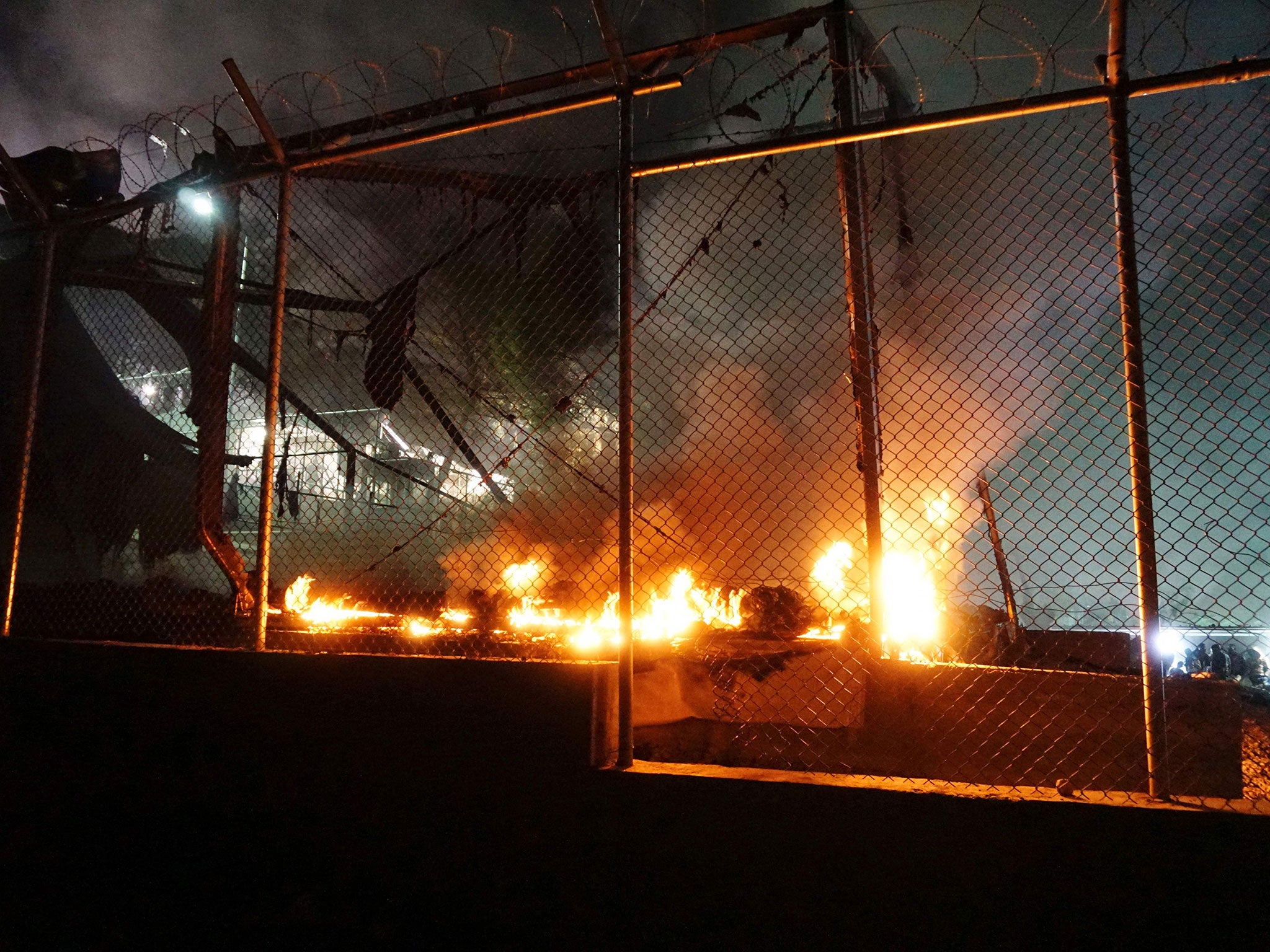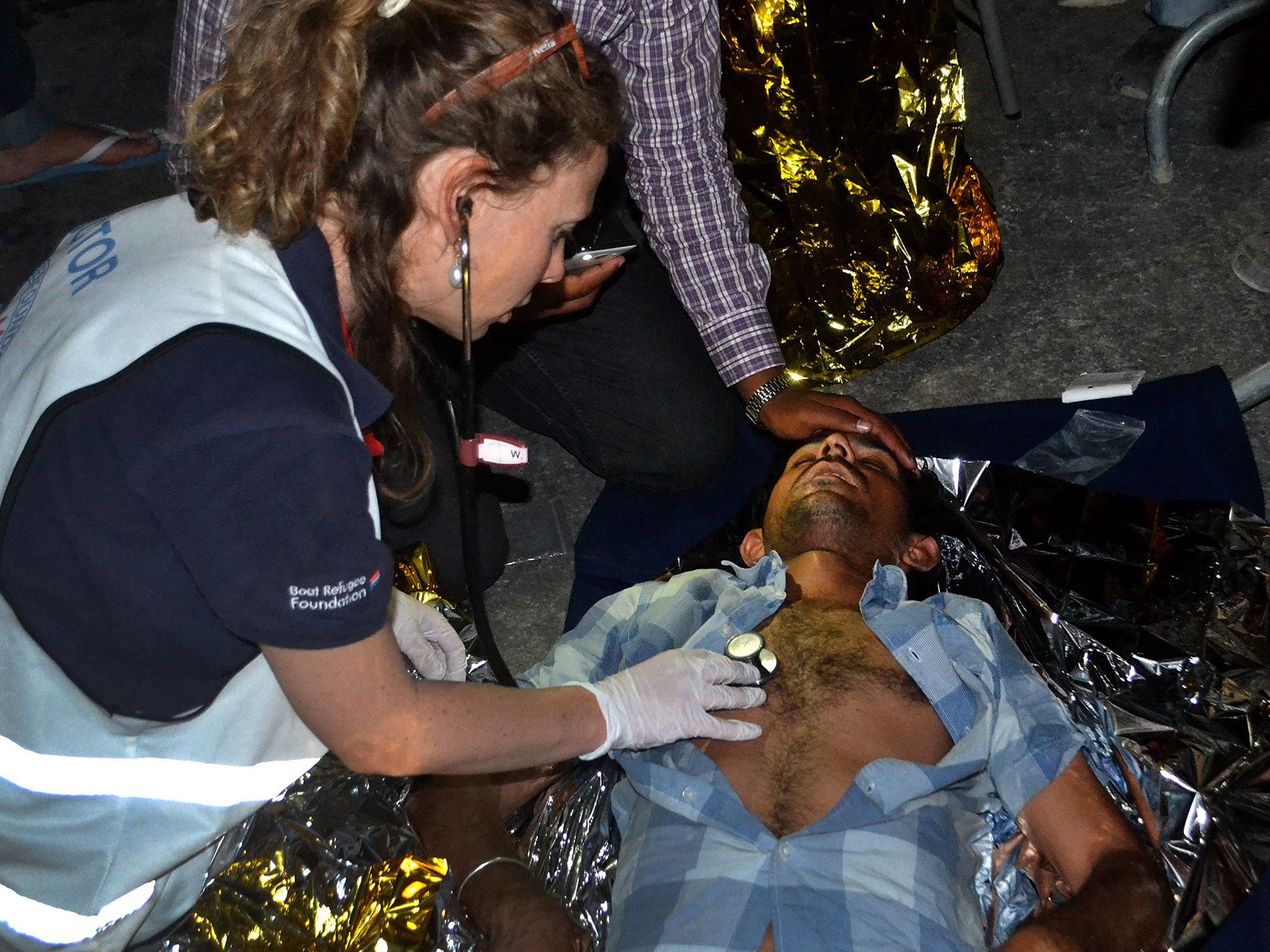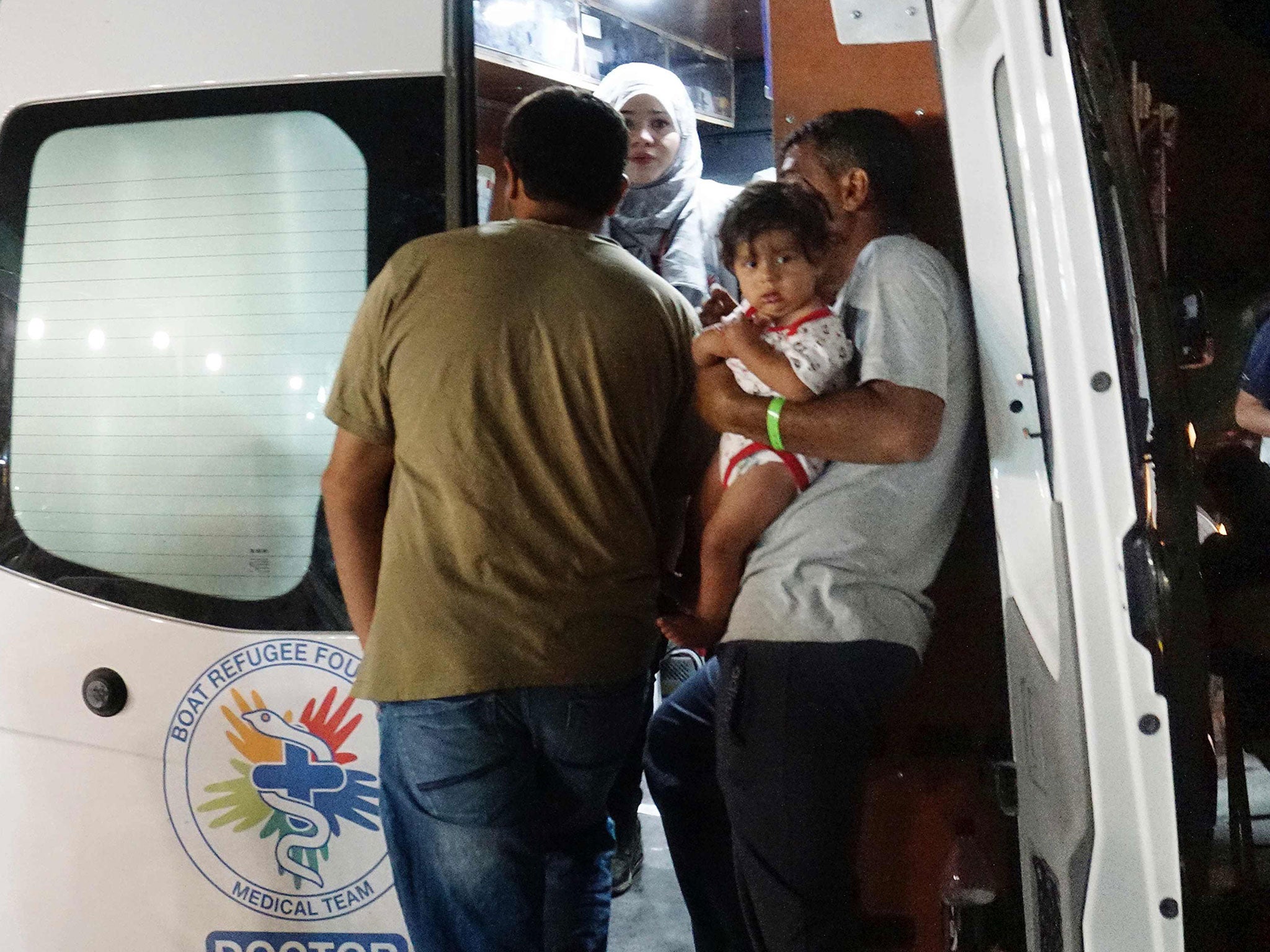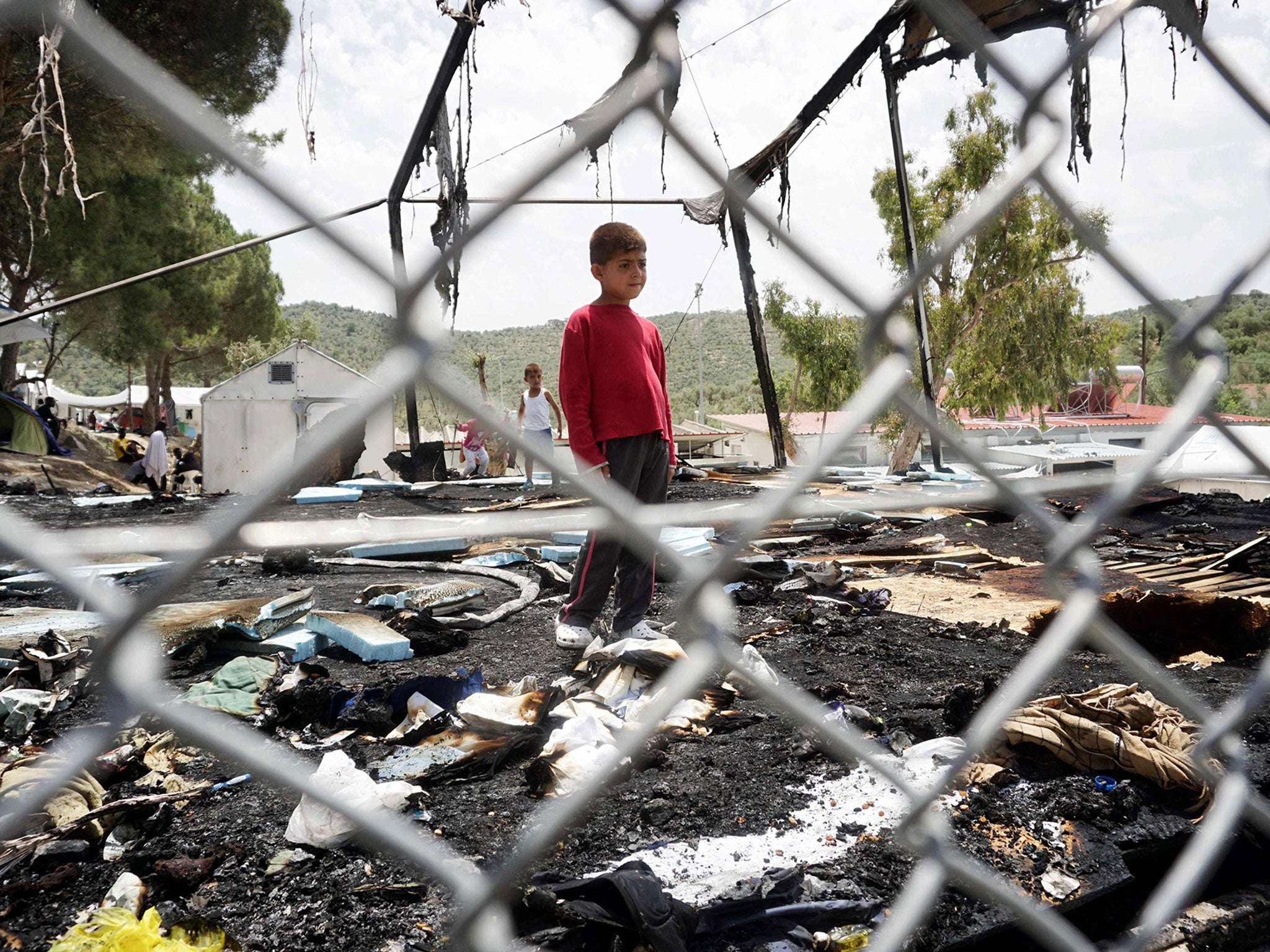Refugees hospitalised after huge fire and clashes at Lesbos detention centre amid warnings over more violence
Humanitarian agencies warned that 'deplorable' conditions in detention centres in Greece were heightening tensions

Your support helps us to tell the story
From reproductive rights to climate change to Big Tech, The Independent is on the ground when the story is developing. Whether it's investigating the financials of Elon Musk's pro-Trump PAC or producing our latest documentary, 'The A Word', which shines a light on the American women fighting for reproductive rights, we know how important it is to parse out the facts from the messaging.
At such a critical moment in US history, we need reporters on the ground. Your donation allows us to keep sending journalists to speak to both sides of the story.
The Independent is trusted by Americans across the entire political spectrum. And unlike many other quality news outlets, we choose not to lock Americans out of our reporting and analysis with paywalls. We believe quality journalism should be available to everyone, paid for by those who can afford it.
Your support makes all the difference.More than 70 refugees have been injured and hundreds left without shelter after a huge fire and clashes broke out at a detention centre in Greece.
Six people were hospitalised following the violence on the island of Lesbos at a former refugee camp where thousands of asylum seekers are now imprisoned as part of the controversial EU-Turkey deal.
Local reports said fighting started between Afghan and Pakistani residents late on Wednesday night in Moria, when a fire swept through the camp, destroying tents and shelters.

At least 70 people were injured according to an account by Save the Children, with photos showing bleeding migrants being treated by paramedics as others were evacuated from the compound.
Sacha Myers, a spokesperson for the charity, said around 300 people had been left without a place to sleep after the destruction.
“Save the Children has talked to families who are extremely afraid and won’t leave their tents because they’re worried about getting caught up in the violence,” she added.
“Some mothers have told us their children cry every night in their tents. Save the Children calls on authorities to ensure children and families in Moria detention centre are provided with the safety and protection they desperately need.”

Residents were seen picking through the charred remains of belongings and supplies on Thursday morning, while those who had lost their shelters tried to rest in the open on blankets.
It was the latest violence at the camp, where more than 2,500 migrants are in detention following the March agreement to hold migrants while their asylum applications are considered and deport them to Turkey if they fail.
The process has been held up by delays in the asylum screening process, triggering frequent unrest at camps on Lesbos and the nearby island of Chios.
Save the Children said protests were happening on an almost daily basis across Greece, where some migrants have been stranded for up to three months in conditions described as “deplorable”.

“They also have very little information about their future and how long they will be in Greece and this is contributing to the increase in tensions,” Ms Myers added.
Human Rights Watch issued a warning last month that police were failing to protect refugees during frequent rounds of violence at detention centres.
It said Moria and other “hotspots” it visited on the islands of Samos and Chios did not separate single women from unrelated adult men, and kept migrants in unsanitary and severely overcrowded conditions in a “chaotic and volatile” atmosphere.
A fight involving around 200 men raged for several hours on the Vathi hotspot in Samos on 13 May, while police used tear gas against refugees including children during a protest as ministers visited Moria in April.
It came just days after the Pope had called for European authorities to treat refugees with kindness in a visit to the detention centre.
Human Rights Watch warned that unaccompanied children and families were living in common areas of Moria because designated spaces were full, while women reported sexual harassment.
Residents also told staff that police guarding the camp had not been intervening in fights.
“In Europe’s version of refugee camps, women and children who fled war face daily violence and live in fear,” said Bill Frelick, the group’s refugee rights director. “Lack of police protection, overcrowding, and unsanitary conditions create an atmosphere of chaos and insecurity in Greece’s razor wire-fenced island camps.”
Join our commenting forum
Join thought-provoking conversations, follow other Independent readers and see their replies
Comments